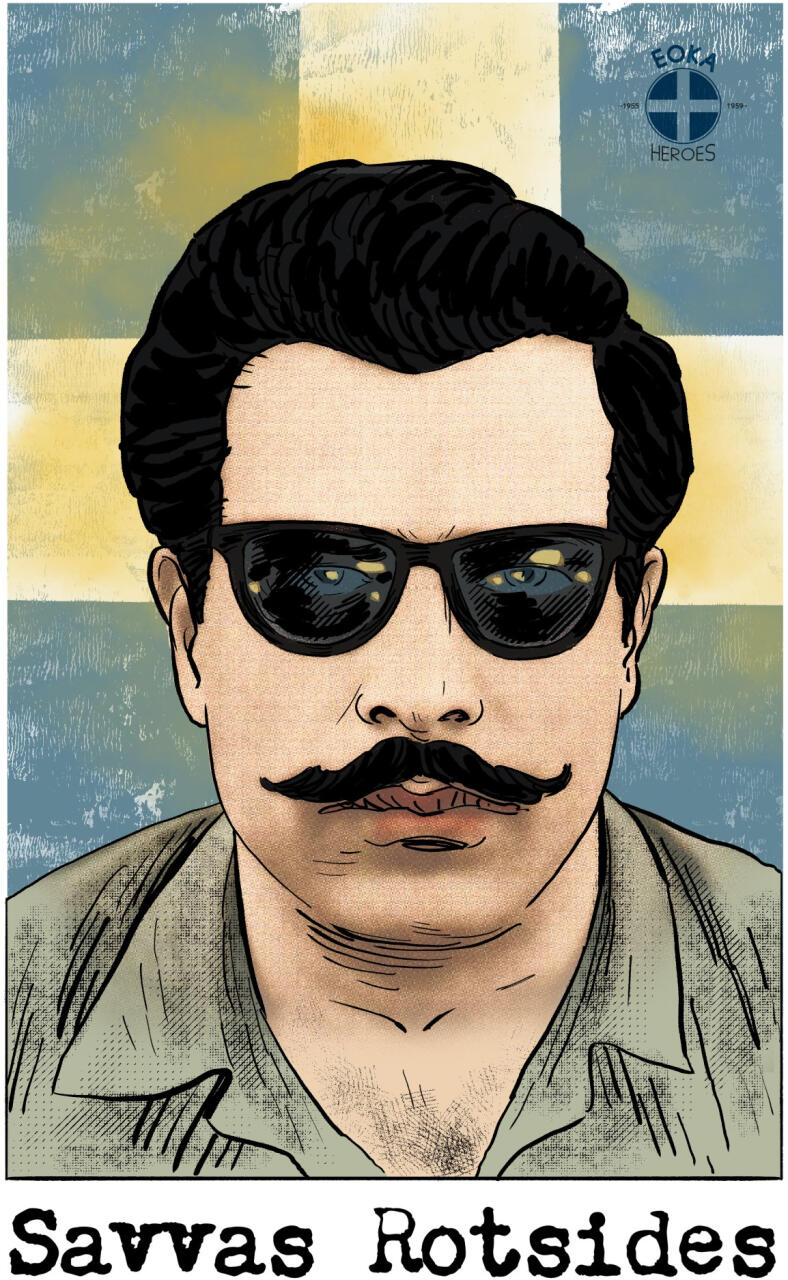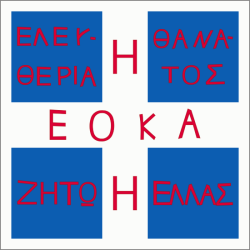Savvas Rotsides

Timeline Events
He was born in the village of Mammari1, Nicosia province, on January 18, 1935.
He was killed on November 25, 1958 in the area of Agros2, in an ambush set up by British soldiers.
Savvas Rotsides finished the primary school of his village and the Samuel School in Nicosia.
He worked at the Hellenic Mining Company as an accountant and then as a storekeeper at the Mitsero mine3. He joined EOKA from the beginning of the struggle, cooperating with the rebel groups of Pitsilia.
On November 18, 1955, he took part in the second operation in the Pitsilia sector, the attack against the explosives guard of the Mitsero mine. The Mitsero mine was EOKA's main source of dynamite supply.
In October 1956 he was arrested and brutally abused by the British, because two revolvers were found in his possession. Acting deceptively, he managed to be led by his investigators to the mountainous area of the village of Agios Epifanios, to allegedly show them the hideout of his associates and, after deceiving them, he managed to escape. He passed his house, where his mother treated his wounds, before hiding.
Digenis instructed his associates to be cautious in rejoining him, until it was established that his method of escape was honorable. Rotsides remained a few months in obscurity, hiding from his fellow fighters, initially in the area of Morphou (currently Turkish-occupied) and then in the villages of Agios Ioannis Malountas, Palaichori and Polystypos. Rejoining the rebel groups of Pitsilia, he took part in many attacks against the English.
On November 25, 1958, Rotsides went to a spring with his competitor Rogeros Shipillis, to get water at their hideout, in the "Skouri" area of Agros. There they fell into an ambush by the English, who violated the existing truce. Rotsides was killed and his competitor managed to escape with serious injuries. Rotsides is the last rebel dead during the Struggle.
His parents dressed him in a wedding suit at the Kyperounta Sanatorium, from where they received him after his death and, receiving into their house the multitude of people who had gathered from all over Cyprus to bid him farewell, they ordered the bells to ring incessantly.



